Mayako Kubo | |
|---|---|
| Born | 5 December 1947 |
| Resting place | |
| Other names | 久保 摩耶子 |
| Occupation | composer |
| Website | Mayako Kubo |
Mayako Kubo (born 5 December 1947) is a Japanese pianist and composer.
Mayako Kubo | |
|---|---|
| Born | 5 December 1947 |
| Resting place | |
| Other names | 久保 摩耶子 |
| Occupation | composer |
| Website | Mayako Kubo |
Mayako Kubo (born 5 December 1947) is a Japanese pianist and composer.
Mayako Kubo was born in Kobe, Japan, and studied piano at Osaka College of Music. In 1972 she continued her studies in composition with Roman Haubenstock-Ramati and Erich Urbanner in Vienna, where she composed her first pieces of tape music at the Institute of Electroacoustics and Experimental Music. In the 1980s she studied with Helmut Lachenmann in Hannover and Stuttgart and then musicology with Carl Dahlhaus in Berlin.
In 1989 Kubo became interested in dramaturgy and theatrical performance, and in 1990 moved to Italy, but then returned to live and work in Berlin in 1994. [1] [2]
Selected works include:
Her work has been recorded and issued on media, including:

Franz Peter Schubert was an Austrian composer of the late Classical and early Romantic eras. Despite his short life, Schubert left behind a vast oeuvre, including more than 600 secular vocal works, seven complete symphonies, sacred music, operas, incidental music, and a large body of piano and chamber music. His major works include the art songs "Erlkönig", "Gretchen am Spinnrade", and "Ave Maria"; the Trout Quintet; the Symphony No. 8 in B minor (Unfinished); the Symphony No. 9 in C major (Great); the String Quartet No. 14 in D minor ; the String Quintet in C major; the Impromptus for solo piano; the last three piano sonatas; the Fantasia in F minor for piano four hands; the opera Fierrabras; the incidental music to the play Rosamunde; and the song cycles Die schöne Müllerin, Winterreise and Schwanengesang.

Artur Schnabel was an Austrian-American classical pianist, composer and pedagogue. Schnabel was known for his intellectual seriousness as a musician, avoiding pure technical bravura. Among the 20th century's most respected and important pianists, his playing displayed marked vitality, profundity and spirituality in the Austro-German classics, particularly the works of Beethoven and Schubert.

Johann Carl Gottfried Loewe, usually called Carl Loewe, was a German composer, tenor singer and conductor. In his lifetime, his songs ("Balladen") were well enough known for some to call him the "Schubert of North Germany", and Hugo Wolf came to admire his work. He is less known today, but his ballads and songs, which number over 400, are occasionally performed.

Carl Adolph Schuricht was a German conductor.
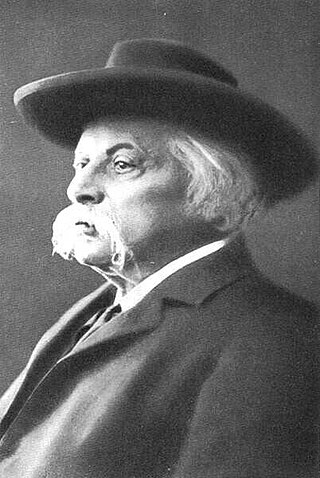
Karl Goldmark was a Hungarian-born Viennese composer.

Dietrich Fischer-Dieskau was a German lyric baritone and conductor of classical music. One of the most famous Lieder performers of the post-war period, he is best known as a singer of Franz Schubert's Lieder, particularly "Winterreise" of which his recordings with accompanists Gerald Moore and Jörg Demus are still critically acclaimed half a century after their release.

Carl Otto Ehrenfried Nicolai was a German composer, conductor, and one of the founders of the Vienna Philharmonic. Nicolai is best known for his operatic version of Shakespeare's comedy The Merry Wives of Windsor as Die lustigen Weiber von Windsor. In addition to five operas, Nicolai composed lieder, works for orchestra, chorus, ensemble, and solo instruments.

Franz Schreker was an Austrian composer, conductor, librettist, teacher and administrator. Primarily a composer of operas, Schreker developed a style characterized by aesthetic plurality, timbral experimentation, strategies of extended tonality and conception of total music theatre into the narrative of 20th-century music.
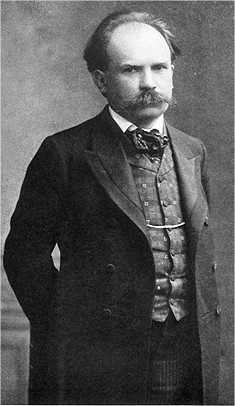
EugenFrancis Charles d'Albert was a Scottish-born pianist and composer who emigrated to Germany.

Egon Joseph Wellesz, CBE, FBA was an Austrian, later British composer, teacher and musicologist, notable particularly in the field of Byzantine music.

Pancho Haralanov Vladigerov was a Bulgarian composer, pedagogue, and pianist.

Aribert Reimann was a German composer, pianist, and accompanist, known especially for his literary operas. His version of Shakespeare's King Lear, the opera Lear, was written at the suggestion of Dietrich Fischer-Dieskau, who performed the title role. His opera Medea after Grillparzer's play premiered in 2010 at the Vienna State Opera. He was a professor of contemporary Lied in Hamburg and Berlin. In 2011, he was awarded the Ernst von Siemens Music Prize for his life's work.

Lovro von Matačić was a Croatian conductor and composer.
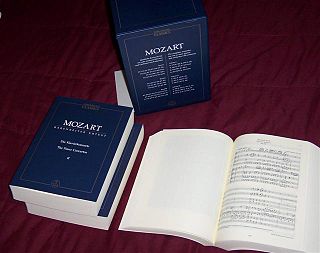
The Neue Mozart-Ausgabe is the second complete works edition of the music of Wolfgang Amadeus Mozart. A longer and more formal title for the edition is Wolfgang Amadeus Mozart (1756–1791): Neue Ausgabe sämtlicher Werke [Wolfgang Amadeus Mozart (1756–1791): New Edition of the Complete Works].
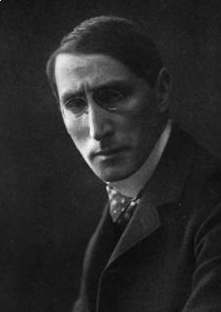
Oskar Fried was a German conductor and composer. He was known as a great admirer of Gustav Mahler, whose works he performed many times throughout his life. Fried was also the first conductor to record a Mahler symphony. He held the distinction of being the first foreign conductor to perform in Russia after the Bolshevik Revolution (1922). He eventually left his homeland in 1933 to work in the Soviet Union after the political rise of Adolf Hitler's Nazi Party, and became a Soviet citizen in 1940.
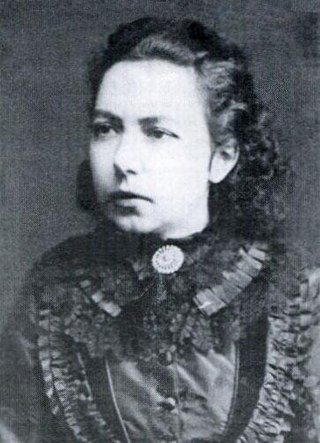
Agnes Tyrrell was a composer and pianist of English and Czech descent.
Elizabeth R. Austin is an American composer.
Shih is a naturalized Austrian composer. Shih has been living and working in Vienna since 1974. In Europe Shih forgoes his full Chinese name due to experience with incorrect writing and pronunciation. However, in Taiwan he is still known by his full name Shih Chieh.
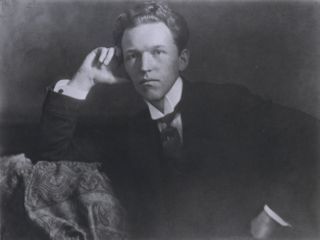
Sigwart Botho Philipp August zu Eulenburg, Count of Eulenburg was the second son of Philipp, Prince of Eulenburg (1847–1921) and his wife Augusta, born Countess of Sandels (1853–1941) and a German late romantic composer who fell in the First World War.
Konstantía Gourzí is a Greek composer and conductor. She is professor of ensemble conducting and new music at the University of Music and Performing Arts Munich.